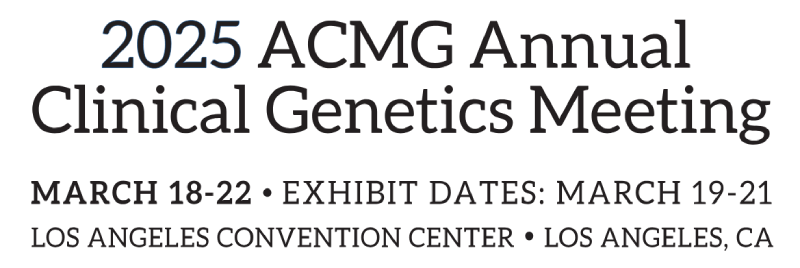Looking Ahead: Advances in Ophthalmic Genetics
19 Mar 2025
Venue:
Los Angeles Convention Centre
Meeting Room:
Petree Hall D
Clinical Genetics and Therapeutics
-
Accredited:
- Accredited
-
Primary Categories:
- Clinical Genetics
-
Secondary Categories:
- Clinical Genetics
Genetic disease is the most common cause of childhood blindness in the developed world, and ocular findings may be a presenting feature in many genetic syndromes. The proposed session will delve into current clinical, research, laboratory, and educational aspects in ophthalmic genetics.
We have gathered a group of experts in ophthalmic genetics to discuss current topics of interest to a broad audience. These topics will include: 1) clinical and genetic characteristics of inherited retinal diseases, including new therapeutics; 2) laboratory testing for ophthalmic conditions, including resolution of genetic variations often missed on short-read whole genome sequencing; 3) overview of newly recognized syndromic forms of nanophthalmos and juvenile glaucoma; 4) development of an ophthalmology-specific training for genetics providers; and 5) use of population-level analysis for new variant classification strategies and its application in the Ocular Clinical Domain Working Group of ClinGen.
The presentations will be followed by a brief panel discussion, with presenters answering questions from the audience.
We have gathered a group of experts in ophthalmic genetics to discuss current topics of interest to a broad audience. These topics will include: 1) clinical and genetic characteristics of inherited retinal diseases, including new therapeutics; 2) laboratory testing for ophthalmic conditions, including resolution of genetic variations often missed on short-read whole genome sequencing; 3) overview of newly recognized syndromic forms of nanophthalmos and juvenile glaucoma; 4) development of an ophthalmology-specific training for genetics providers; and 5) use of population-level analysis for new variant classification strategies and its application in the Ocular Clinical Domain Working Group of ClinGen.
The presentations will be followed by a brief panel discussion, with presenters answering questions from the audience.
Learning Objectives
- Identify key diagnostic and genetic features of inherited retinal disease
- Recognize several newly described syndromes that have prominent and treatable ocular features
- Examine the limitations of short-read genome sequencing which can be overcome using computational tools
- Exemplify a sub-specialty training platform and its success for genetics professionals
- Apply genetics principles to improve clinical and molecular diagnosis of ophthalmic diseases
Agenda
-
 Welcome and Introduction
Welcome and Introduction -
 Inherited Retinal Disease: From Diagnosis to Treatment1:30 PM – 1:45 PM
Inherited Retinal Disease: From Diagnosis to Treatment1:30 PM – 1:45 PM -
 Ocular Malformations and Syndromes: Recognition, Testing, and Treatment1:45 PM – 2:00 PM
Ocular Malformations and Syndromes: Recognition, Testing, and Treatment1:45 PM – 2:00 PM -
 What Does it Take to Make an Ocular Geneticist?2:00 PM – 2:15 PM
What Does it Take to Make an Ocular Geneticist?2:00 PM – 2:15 PM -
 Population-Level Analysis Improves Clinical Accuracy for Genetic Testing2:15 PM – 2:30 PM
Population-Level Analysis Improves Clinical Accuracy for Genetic Testing2:15 PM – 2:30 PM -
 Resolving Genome Sequencing-Refractory Molecular Diagnoses in Inherited Retinal Diseases2:30 PM – 2:45 PM
Resolving Genome Sequencing-Refractory Molecular Diagnoses in Inherited Retinal Diseases2:30 PM – 2:45 PM -
Panel DiscussionPanel and Q&A2:45 PM – 3:00 PM
-




)
)
)
)
)
)
)
)
)
)
)
)
)
)
)
)
)
)
)
)